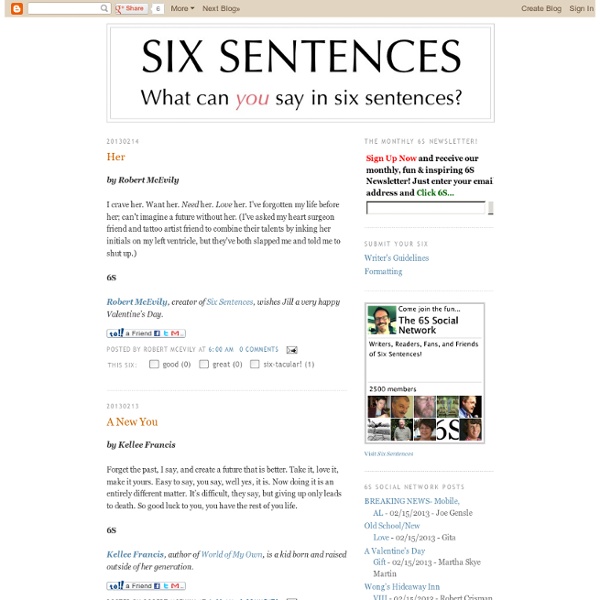



The 6 steps to World-Changing Writing In all the writing I do, I’ve puzzled out that there are six basic steps – not just for changing the world through writing, but for writing in general. So I wrote up a present for you! And asked Pace to make it pretty (and to help me with formatting this post for you). This is a no-catch, easy-to-get, free downloadable ebook for you to snag, read, and share with whomever you like. I poured my heart into it; I hope it touches yours. The Six Steps to World-Changing Writing 1. First and foremost, you need to write. 2. Next, you’ll need to find your voice. 3. Next, you’ll need to find your audience, since you can’t be a world-changing writer if no one reads your writing. 4. You’ll need support. 5. Next comes growth. 6. Lastly, you need to set your intention. What will? You. Here’s where you can get the whole cookie! Yes, I know it’s usually the whole enchilada, but I prefer cookies. I wrote way more about each of these steps. This is just the tip of the iceberg! Read it. Tagged as: 6 steps, wcww
Romance Your Writing: Five Exercises to Vary Your Creative Routine and Spice Up Your Writing Life - WritingSpirit Blog Whether you're struggling to find the right words or they're flowing fast and free, it's always fun and inspiring to vary your writing routine, or try something new, to get another perspective. When you're regularly "mixing it up" by writing somewhere new, or experimenting with different brainstorming or creativity techniques, your romance with words will stay fresh, and your writing will thank you for it. Get ready, because it's time to explore, experiment, and expand! Try some of these (or come up with ideas of your own), just for the fun of it. Go somewhere different to write--a café, the park, a 5-star hotel lobby, the car wash, or Disneyland. Even if your routine works for you, doing something new or different--daily or weekly--will open up new avenues of creative thought, insight and inspiration. In order to create a new habit of "mixing-it-up," it might help to marry a specific day of the week with something you'd like to explore. For instance: How do you romance your writing?
writingbliss.com email courses, e-mail courses, workshops for writers, about writing Journaling to find the root of the problem. A couple weeks ago, I wrote the post Sit Down and Write. In it, I promised that I was going to write about a process I personally use to get to the bottom of whatever issues I may be dealing with. It’s called journaling, and it’s a method that was taught to me by my counselor. The idea is simple enough. The process takes blatant honesty, which isn’t always simple, even when you’re dedicated to the idea. Journaling to find the root of the problem. Step One: Write down the problem or the issue that you’re dealing with.Step Two: Write down the question, “why is that such a big deal to me?” It’s much easier if you see it in action before trying it yourself. CURRENT ISSUE: I am frustrated that John doesn’t want me to hang out with our mutual female friends alone. Why is that a big deal to me? Because they are my friends too, and all I want to do is hang out with them when I’m bored or lonely.Why is that a big deal to me? Because that’s what best friends and bros do. ROOT EMOTION: Fear of Rejection
Planet SARK DIY Writer’s Retreat | NorthCentralPA.com Who needs heat? Drink coffee and write, write, write! Scheduling time to write creatively is a difficult task for most authors. It’s a selfish endeavor, hiding from the world, shirking responsibilities, ignoring the family. But it’s also a necessary endeavor. Time for writing usually comes in small chunks. If writing during small chunks of time isn’t working for you, consider a “writer’s retreat.” Last year, my friend Janice kicked me in the butt and made me wrap up “Distracted,” my first novel, by inviting me to spend a free week at her timeshare resort. His loss was my gain. If you’re not a writer, but know one who could use a retreat, consider taking your friend away for a long weekend. Retreats can be as simple as a few hours in a quiet spot, a weekend away or even a weeklong escape. Writer's Retreat Kit If you wish to take a retreat (an afternoon or a weekend), but can’t get away from home, consider getting “spiritually away.”
The Office of Letters and Light Blog - When is a Writer a Writer? I’m a new runner. I’ve only been at it for a few months, after walking my very first 5K last year. I’m still overweight, so I’m far from fast, and I’m such a rank newbie that I often ask myself whether or not I can actually call myself a runner. I have a subscription to Runner’s World. This insecurity isn’t limited to running. There have been some pretty controversial articles on this subject on the web. I found clarity in a comment to this blog post that asks when you can call yourself a true runner: “A runner is one who runs. If you write… you are a writer. It doesn’t matter if you’re a published author. A writer is one who writes! Often, our critics will tell us that NaNoWriMo promotes the idea that anyone can be a writer. Well, duh! That’s the point. So the next time someone tries to tell you that you’re not a writer because you haven’t done XYZ, or because you didn’t spend enough time on something you wrote, or didn’t do it to their personal specifications, smile and walk away.